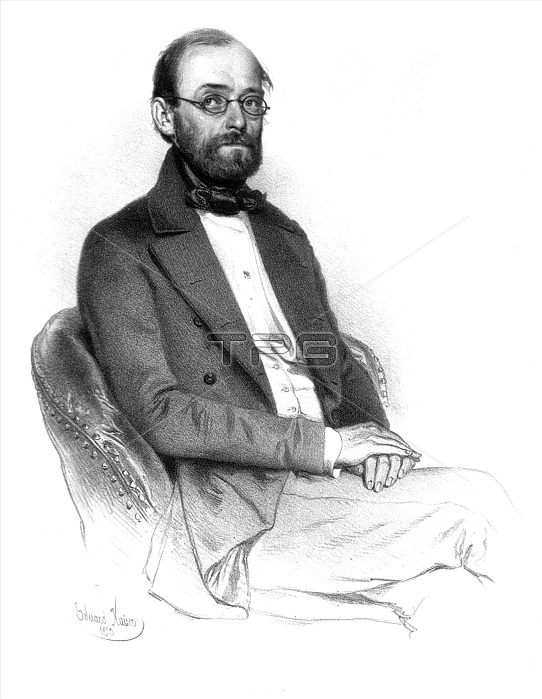
Rokitansky photographed in 1862. Carl von Rokitansky (February 19, 1804 - July 23, 1878) was a Bohemian physician, pathologist, humanist philosopher and liberal politician. He attained a doctorate in medicine in 1828 at the University of Vienna. As a young professor, he recognized that the discipline of pathological anatomy could be of great service to clinical work in the hospital, because it could offer new diagnostic and therapeutic possibilities to the bedside physician. His name is associated with many diseases/morphologic features of disease. He also developed a method of autopsy which consisted mainly of in situ dissection, and is said to have supervised 70,000 autopsies, and personally performed over 30,000, averaging two a day, seven days a week, for 45 years. He believed scientists should first regard humans as conscious and free-willing subjects and only then follow their urge toward knowledge. The feeling of humanity would be lost if physicians regarded human beings purely as research objects. Thus Rokitansky brought up for the first time the question of ethics in medicine. He helped to shape the era of Austrian high liberalism. He represented liberalism among the educated middle class and strove for "freedom and progress", both to the university reform and to the substantial improvement of health sciences. He died in 1878 at the age of 74.
| px | px | dpi | = | cm | x | cm | = | MB |
Details
Creative#:
TOP22162323
Source:
達志影像
Authorization Type:
RM
Release Information:
須由TPG 完整授權
Model Release:
N/A
Property Release:
No
Right to Privacy:
No
Same folder images:

 Loading
Loading